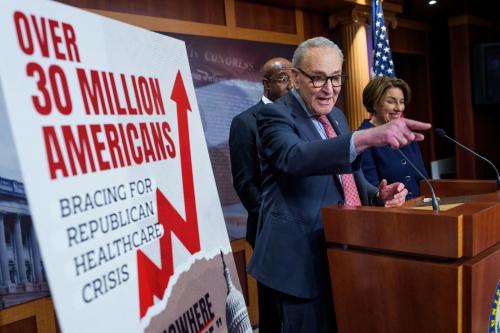Matthew Fiedler and Richard G. Frank recently responded to a request for information from Ranking Member Bill Cassidy of the Senate Committee on Health, Education, Labor and Pensions on ensuring access to cell and gene therapies. Their letter makes three main points: (1) the most likely driver of access restrictions is not simply that these therapies are expensive, but rather that the nature of the illnesses that these therapies target will combine with the therapies’ high prices to create strong adverse selection pressures that encourage payers to restrict coverage; (2) avoiding this outcome will require effective enforcement of existing policies that address adverse selection, especially existing benefit regulations, and potentially approaches that relieve plans of some of the cost of these therapies; and (3) given Medicaid’s history as a relatively restrictive payer, ensuring that Medicaid enrollees have robust access to these therapies may require policies that directly change states’ options or incentives related to coverage of these therapies.
-
Acknowledgements and disclosures
The authors gratefully acknowledge helpful comments from Loren Adler, as well as excellent research and publishing assistance from Chloe Zilkha and Caitlin Rowley.
The Brookings Institution is financed through the support of a diverse array of foundations, corporations, governments, individuals, as well as an endowment. A list of donors can be found in our annual reports published online here. The findings, interpretations, and conclusions in this report are solely those of its author(s) and are not influenced by any donation.
The Brookings Institution is committed to quality, independence, and impact.
We are supported by a diverse array of funders. In line with our values and policies, each Brookings publication represents the sole views of its author(s).






Commentary
Response to a request for information on ensuring access to cell and gene therapies
January 22, 2024